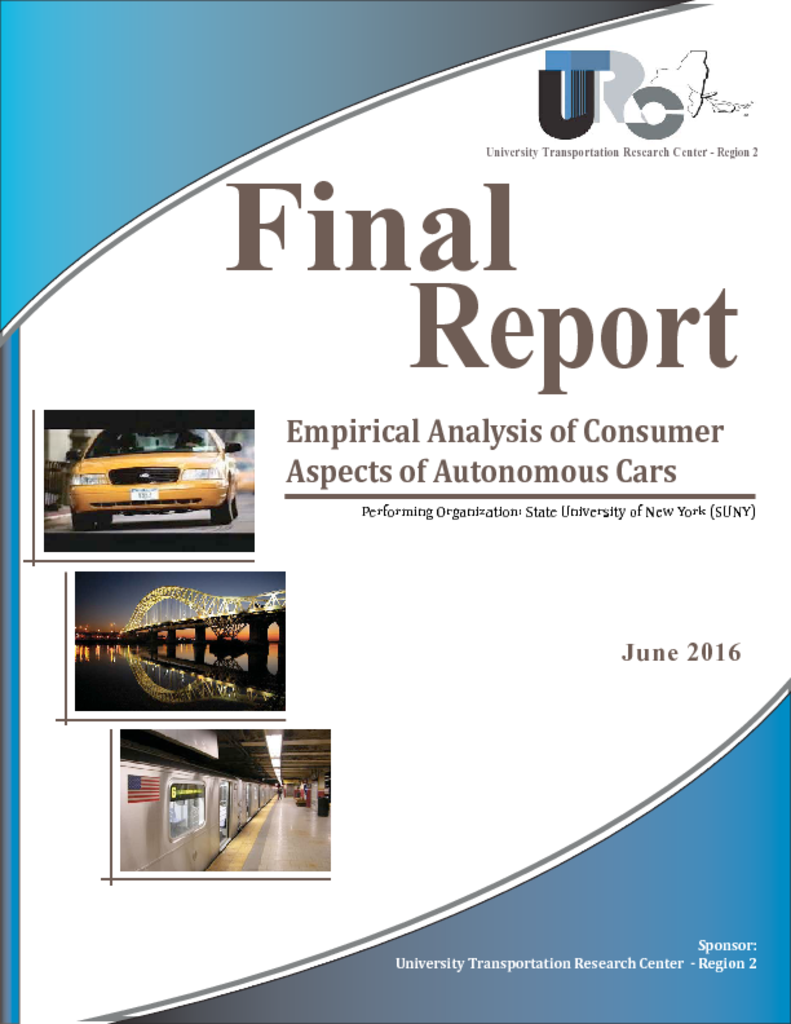Evidence is rapidly accumulating that attaining the full set of benefits from Automated Vehicles (AVs) will require that they do not merely mimic human-driving behavior. For instance, in recently-completed early-stage research, Le Vine and colleagues demonstrated three prospective novel traffic-operations regimes associated with AVs, each of which have the potential to deliver a unique stream of benefits: 1) Vehicular kinematics (trajectories) to balance, in novel ways, between comfort and capacity 2) A dynamic, voluntary and de-centralized (peer-to-peer) congestion pricing mechanism 3) Alternative vehicle-speed regimes (in some circumstances slower, while faster in others) The findings of this previous phase of research were purely theoretical, and what is therefore now required are empirical results through which AV-occupants’ preference structures for these prospective behavioral regimes can be established.


